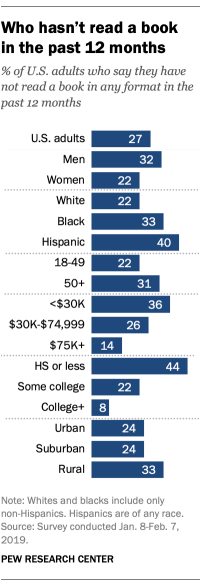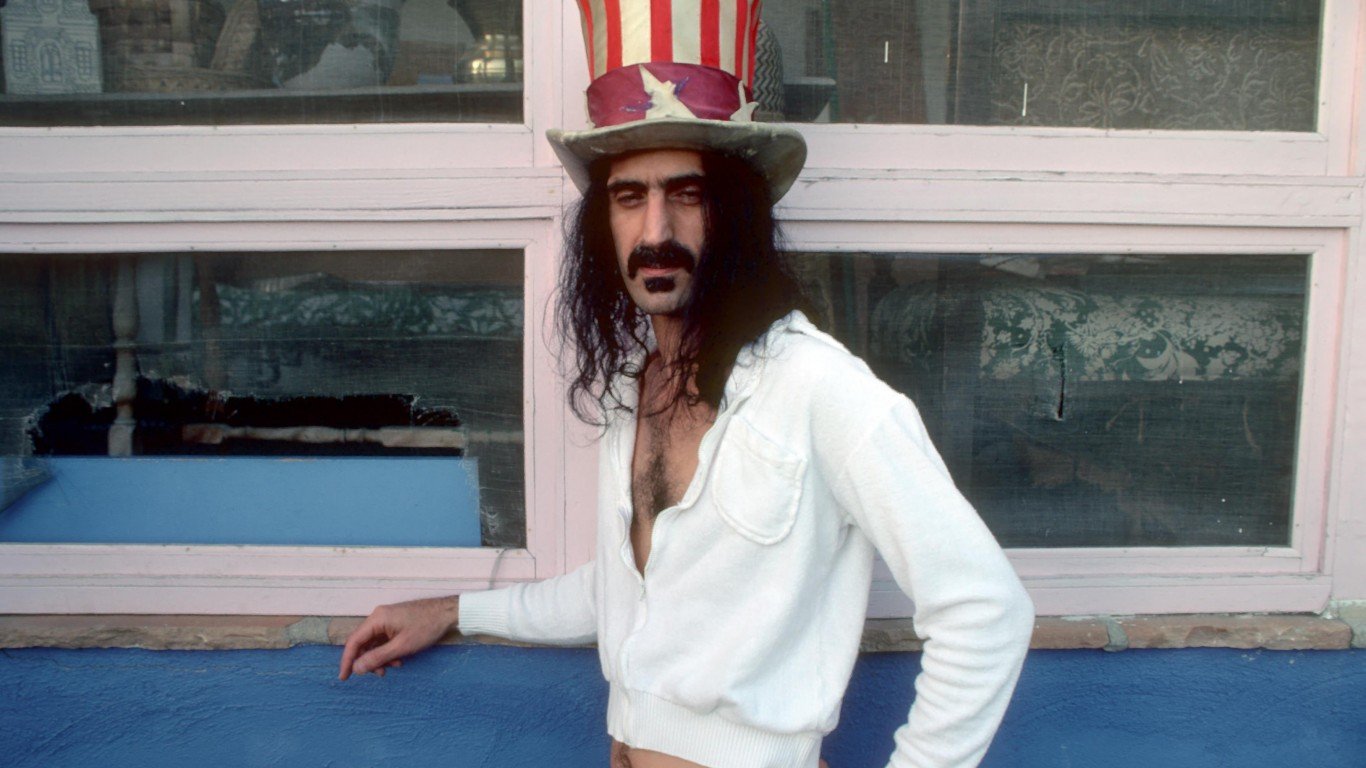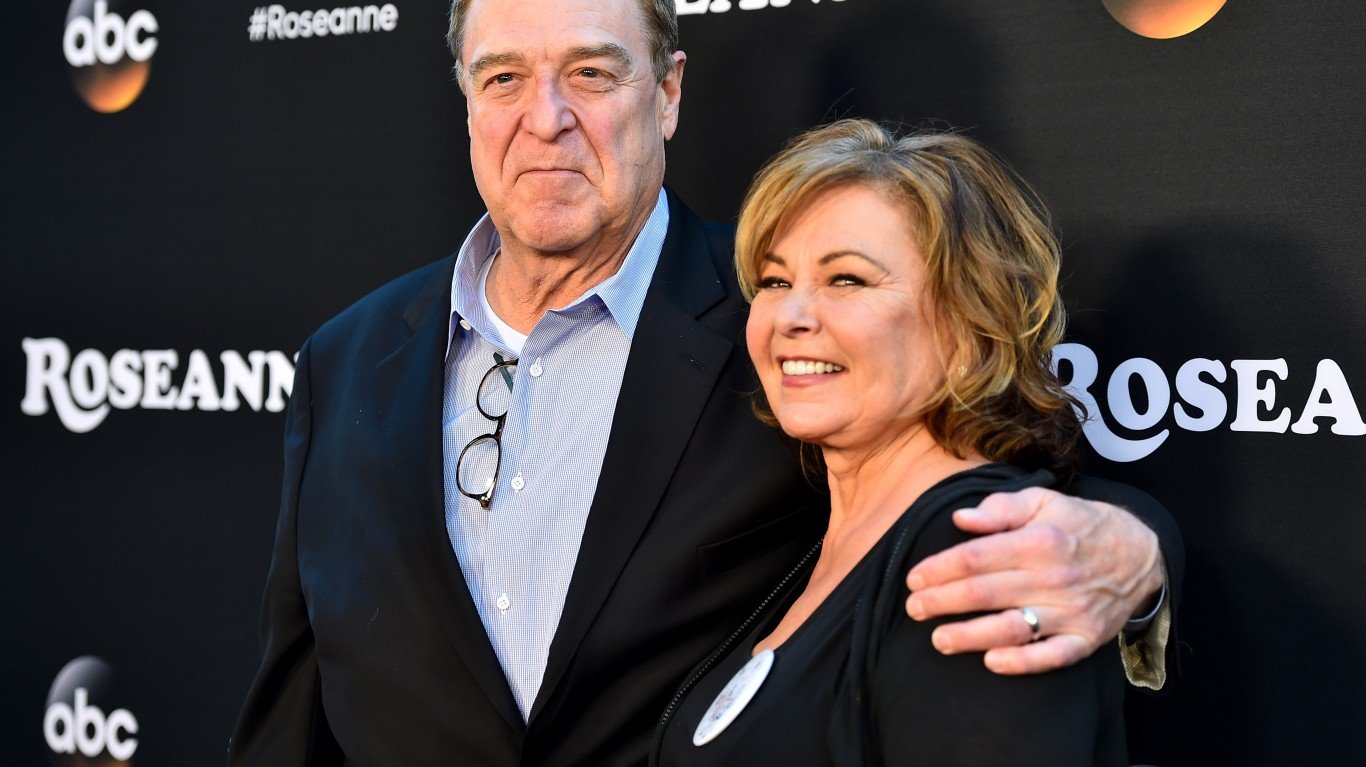

In America, there is a bookstore in almost every town (and hundreds in big cities), a library, people who share books with one another. Amazon allows almost any American to get a book or an electronic copy of it. Yet, 27% of Americans say they have not read a book, either in whole or in part, in the past year.
According to new research from the Pew Research Center, people who are less likely to read books fall into several categories, as do people who read more regularly. Forty-four percent of people who have a high school degree or less did not read a book last year. Forty percent of Hispanics fall into the same category. Thirty-six percent of people with income under $50,000 have not read a book. Thirty-three percent of rural residents have not either. Thirty-three percent also applies to black Americans.
[in-text-ad]
Book reading in the United States has decreased over the years. Nineteen percent of adults said they had not read a book in 2011.

The news is bad for the book industry, which has suffered for many years. It may be equally bad for other industries that rely on active readers among the population. Newspapers have to be at the top of this list. They already are struggling to keep current readership.
If literacy and reading are critical pillars to a democracy as a way for people to be self-taught, another American habit is eroding in a way that undermines that.
Pew Research was in the field from January 8 to February 7, 2019, and polled 1,502 people over 18 years old.
Essential Tips for Investing: Sponsored
A financial advisor can help you understand the advantages and disadvantages of investment properties. Finding a qualified financial advisor doesn’t have to be hard. SmartAsset’s free tool matches you with up to three financial advisors who serve your area, and you can interview your advisor matches at no cost to decide which one is right for you. If you’re ready to find an advisor who can help you achieve your financial goals, get started now.
Investing in real estate can diversify your portfolio. But expanding your horizons may add additional costs. If you’re an investor looking to minimize expenses, consider checking out online brokerages. They often offer low investment fees, helping you maximize your profit.
Thank you for reading! Have some feedback for us?
Contact the 24/7 Wall St. editorial team.



